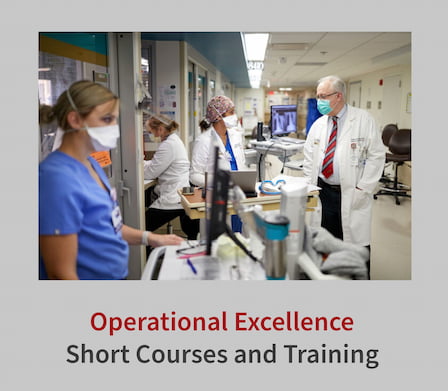Healthcare operations management can make or break a healthcare institution. Effective management helps achieve excellent operational performance at all levels and maximize profitability. However, healthcare managers and workers should adhere to regulations, build their knowledge base, and apply the right strategy to achieve operational excellence.
Operations management helps keep up with regulations, protect the rights or interests of patients, identify potential challenges, and develop practical solutions to those challenges. So, it involves focusing on financial, administrative, legal, and healthcare aspects that affect customer experience. This article will highlight the best operations management strategies and the overall impact of effective operations management.
Excellent Patient Care
Healthcare institutions that want to build a name must create a safe and compliant patient care environment. Healthcare managers and employees cannot think of Health Care Operational Excellence without paying attention to patient care.
So, they must establish quality control measures to ensure workers and the facility meet the safety and operational standards. They should also prioritize the needs of the patients at all levels, from the reception and consultation rooms to patient wards and follow-up programs.
Another strategy for effective patient care is continuous improvement of clinical care to enhance treatment outcomes. This involves collecting feedback and analyzing client data to adjust clinical care and improve client outcomes and experience. However, healthcare facility owners should always balance cutting expenses and increasing patient care for maximum benefits.
Effective Financial Planning
Operations management involves making good use of finances and improving efficiency. Healthcare business owners can invest finances in new medical technologies, hire top talents, streamline workflow, and upgrade the quality of care.
Effective healthcare financial management involves creating a budget and sticking to it. It also involves minimizing operational expenses and using predictive tools to avoid cash flow problems. Eliminating unnecessary costs and plowing back profits where it will have a significant impact is also a step in the right direction.
So, healthcare business owners must use relevant technologies and tools to collect and analyze data to allocate resources appropriately and achieve strategic goals. With relevant data, healthcare managers can cut costs, negotiate better contracts, collaborate with new partners, and ensure long-term business sustainability.
Regulatory Compliance
Effective healthcare management ensures a medical facility follows standard diagnostic and treatment procedures and adheres to healthcare regulations. Since the healthcare sector is strictly regulated, overlooking some regulations, such as HIPAA and OSHA regulations, could lead to lawsuits and penalties.
However, management can review all the regulations from time to time to identify compliance gaps. They can also allocate resources in problematic areas to streamline operations and avoid penalties. Healthcare facilities can also leverage technology and AI systems to ensure compliance with all regulations.
Patient Satisfaction
Operational excellence improves patient satisfaction and attracts more clients. However, dissatisfaction can lead to negative online reviews and a poor reputation. So, healthcare business owners should work with experts to eliminate bottlenecks that increase waiting times or poor health services.
Another proactive approach to ensure client satisfaction is timely equipment maintenance. Quality and well-maintained equipment are easy to use and help with effective diagnosis and patient care. Healthcare management also needs to have systems in place to streamline patient admission, diagnosis, monitoring, billing, and follow-up.
These healthcare operations strategies can help streamline health services, cut costs, optimize operations, and improve customer satisfaction. However, healthcare business owners should partner with experts to implement these strategies. Doing so will increase the chances of success and reduce the risk of making costly healthcare mistakes.


